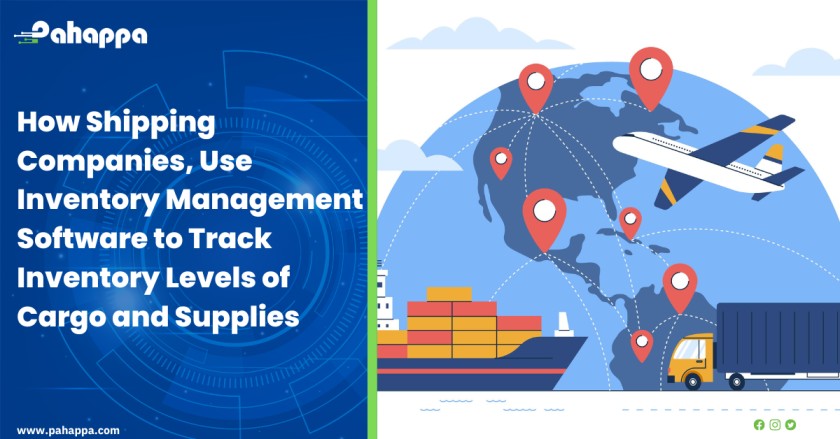A shipping company is a business organization that specializes in the transportation of goods, products, or commodities from one location to another, typically across different geographical regions or countries. These companies provide various logistics services to facilitate the movement of cargo, merchandise, and materials, often using different modes of transportation such as ships, aeroplanes, trucks, and trains.
Shipping companies play a crucial role in global trade and commerce by enabling the movement of goods between manufacturers, suppliers, distributors, and consumers. They offer a range of services including cargo booking, transportation planning, documentation, customs clearance, cargo tracking, and delivery to the final destination. Depending on the size and scope of their operations, shipping companies may focus on specific niches like container shipping, bulk cargo transportation, perishable goods handling, or specialized freight services.
In addition to transporting goods, shipping companies are responsible for managing and coordinating various logistical aspects, such as vessel or transport scheduling, cargo storage, handling and packaging, route optimization, and compliance with international shipping regulations and safety standards.
Shipping companies can benefit from various modules in an inventory management system to streamline their operations and enhance efficiency. Here are some key modules they could consider implementing:
- Order Management: This module handles the processing of orders, order tracking, and order fulfilment. It helps track the status of orders from creation to delivery, ensuring smooth coordination throughout the shipping process.
- Inventory Tracking: This module keeps track of inventory levels, stock movements, and stock availability. It helps shipping companies maintain optimal inventory levels, reducing the risk of stockouts or overstocking.
- Warehouse Management: Warehouse management modules assist in organizing and optimizing the physical storage of goods in warehouses. They include features like bin locations, shelving arrangements, and picking strategies to facilitate efficient order fulfilment.
- Barcode and RFID Integration: Barcode and RFID technology can be integrated to facilitate accurate tracking of items in the warehouse. This module enhances visibility and minimizes manual errors when handling inventory.
- Shipping and Fulfillment: This module handles the entire shipping process, generating shipping labels, calculating shipping costs, and coordinating with carriers. It can also include automated order picking and packing processes.
- Supplier Management: This module helps manage relationships with suppliers, automate reorder processes, and maintain up-to-date supplier information. It ensures that the company has a steady supply of inventory.
- Demand Forecasting: Demand forecasting modules use historical data and trends to predict future demand for products. This assists shipping companies in planning their inventory levels and improving their stock replenishment strategies.
- Returns Management: This module handles the processing of returned items, managing restocking, refurbishing, or disposal processes. It helps maintain accurate inventory records and enhances customer satisfaction.
- Reporting and Analytics: Reporting and analytics modules provide insights into inventory performance, order fulfilment rates, stock turnover, and other key metrics. These insights enable informed decision-making and process improvements.
- Multi-location Support: If a shipping company operates in multiple locations or warehouses, a module that supports multi-location inventory management is essential. It ensures accurate tracking of inventory across various sites.
- Integration with E-commerce Platforms: For shipping companies involved in e-commerce fulfilment, integrating the inventory management system with popular e-commerce platforms can streamline order processing.
- Real-time Tracking: Implementing real-time tracking modules allows for continuous monitoring of inventory movement and order status, providing accurate information to customers and stakeholders.
- Mobile App Integration: A mobile app module enables on-the-go access to inventory data, order processing, and tracking, allowing staff to manage inventory activities from mobile devices.
- Alerts and Notifications: Automated alerts and notifications can be set up to inform relevant personnel about critical inventory events, such as low stock levels or delayed shipments.
When selecting and implementing modules for an inventory management system, it’s essential to consider the specific needs and operations of the shipping company to ensure the chosen modules align with their goals and processes.
How Shipping companies can use an Inventory management system
Shipping companies use inventory management software to effectively track inventory levels of cargo and supplies, ensuring smooth operations and timely deliveries. Here’s how they typically utilize such software:
- Centralized Data Management: Inventory management software allows shipping companies to centralize data related to their inventory. This includes information about different types of cargo, quantities, storage locations, and supplier details. This centralized approach ensures that everyone involved in the logistics process has access to accurate and up-to-date information.
- Real-Time Tracking: The software provides real-time tracking of inventory levels. This is crucial for monitoring stock levels and ensuring that there are no shortages or excesses of cargo and supplies. Real-time tracking also helps in making informed decisions about replenishment and order management.
- Automated Reordering: Inventory management software often includes automated reorder triggers. When the software detects that the stock of a particular item has fallen below a certain threshold, it can automatically generate purchase orders or notifications to suppliers, ensuring that reordering happens in a timely manner to avoid stockouts.
- Demand Forecasting: Advanced inventory management systems incorporate demand forecasting algorithms. By analyzing historical data and market trends, the software can predict future demand patterns, helping shipping companies adjust their inventory levels accordingly.
- Barcode and RFID Integration: Barcode and Radio Frequency Identification (RFID) technologies can be integrated with inventory management software. This enables efficient tracking of individual items as they move through the supply chain. Barcodes and RFID tags can be scanned at various checkpoints, ensuring accurate and real-time inventory updates.
- Batch and Serial Number Tracking: For items that have batch or serial numbers, inventory management software allows for precise tracking of these numbers. This is particularly important for tracking recalls, and warranty claims, and identifying specific units in case of quality issues.
- Supplier Management: The software can store information about suppliers, including contact details, lead times, and pricing. This information helps shipping companies manage their relationships with suppliers and make informed decisions about procurement.
- Reporting and Analytics: Inventory management software provides various reporting and analytical tools. These tools allow shipping companies to analyze inventory turnover, carrying costs, stockouts, and other key performance indicators (KPIs). This data helps in making strategic decisions to optimize inventory management.
- Multi-Location Management: Shipping companies often have multiple warehouses or distribution centres. Inventory management software enables efficient management of inventory across different locations, helping to prevent overstocking or stockouts at specific locations.
- Integration with Other Systems: Inventory management software can integrate with other systems like accounting, order processing, and shipping systems. This integration streamlines the overall logistics process, reducing manual data entry and minimizing errors.
- Compliance and Regulation: For certain types of cargo, shipping companies must comply with regulations and standards. Inventory management software can assist in tracking compliance-related information and ensuring that all necessary documentation is in order.
In conclusion, inventory management software plays a crucial role in helping shipping companies keep track of their cargo and supplies efficiently. It enables real-time tracking, automated reordering, demand forecasting, and integration with various technologies, ultimately contributing to smoother operations and improved customer satisfaction. To know more about inventory management software and what it can do for your business, click here.











